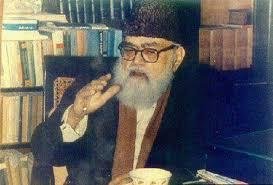-
Web sayfası bildirimcisi
- EXPLORE
-
Blogs
-
Events
Key Lessons from Maulana Maududi’s Writings on Faith and Society

What makes a thinker truly timeless? Maulana Abul A’la Maududi books, an intellectual giant of the 20th century, left behind a legacy that continues to resonate with scholars, activists, and believers worldwide. His writings, a unique blend of faith and pragmatism, offer profound insights into the intersection of religion, governance, and human society. This article delves into the key lessons we can learn from his works, exploring how his ideas remain relevant in today’s fast-changing world.
Faith as the Foundation of Life
Islam: More Than Rituals
One of Maududi’s central teachings was that Islam is not confined to prayer and fasting. Instead, it’s a comprehensive way of life. In his book Towards Understanding Islam, he emphasized that faith permeates every aspect of a believer’s existence, from personal ethics to public responsibilities.
Tawhid as the Core Principle
Maududi highlighted Tawhid (the oneness of God) as the cornerstone of Islam. This concept, according to him, was not just theological but profoundly practical, shaping how individuals interact with society and politics.
The Role of Society in Shaping Faith
The Interdependence of Individual and Society
Maududi believed that faith thrives in a supportive environment. He argued that a society structured around Islamic values fosters piety and moral uprightness, creating a ripple effect that strengthens the community.
Community as a Moral Anchor
He advocated for a cohesive, faith-driven community that acts as a safeguard against moral decay. This idea of collective responsibility is as relevant today as it was during his time.
Click here to read more: https://askmaududi.com/maulana-maududi-books/
Islamic Governance: A Vision for Society
Sharia as a Framework for Justice
Maududi’s concept of Islamic governance was deeply rooted in the idea of justice. He saw Sharia as a divine legal framework designed to ensure fairness, equality, and human dignity.
The Balance Between Spirituality and Politics
For Maududi, politics wasn’t a secular venture; it was an extension of one’s faith. He envisioned a governance model where spiritual and temporal matters were seamlessly integrated.
Education as a Tool for Empowerment
Knowledge as a Religious Duty
Maududi repeatedly stressed that seeking knowledge was a form of worship. He believed that education, both religious and secular, was essential for understanding and implementing Islamic principles in daily life.
Islamic Education: Bridging Faith and Modernity
His writings called for an education system that harmonized Islamic teachings with modern knowledge, preparing individuals to tackle contemporary challenges without compromising their faith.
Da’wah and Activism: A Lifelong Mission
Spreading the Message of Islam
Maududi saw Da’wah (inviting others to Islam) as the collective responsibility of the Muslim community. His works emphasized the importance of conveying Islam’s universal message through peaceful and constructive means.
Activism for Social Change
He was a strong advocate for activism, urging Muslims to actively participate in societal reform. For Maududi, activism was not about confrontation but about creating positive, faith-driven change.
Ethics and Morality in Daily Life
Moral Integrity as a Measure of Faith
In Maududi’s view, morality wasn’t optional—it was the essence of faith. He argued that a true believer is someone whose personal conduct reflects Islamic ethics, whether in business, family, or public life.
The Importance of Accountability
He often stressed the concept of accountability, reminding believers that every action is recorded and will be judged in the Hereafter. This focus on accountability acts as a moral compass for individuals navigating the complexities of modern life.
Challenges and Resilience
Faith Amid Adversity
Maududi’s life was a testament to the power of resilience. Despite imprisonment and opposition, he remained steadfast in his mission, inspiring generations to stand firm in their beliefs.
Lessons in Perseverance
His writings encourage believers to view challenges as opportunities for growth, urging them to rely on faith as a source of strength during difficult times.
Global Influence and Modern Relevance
Shaping Modern Islamic Thought
Maududi’s ideas have left an indelible mark on Islamic movements across the globe. His emphasis on integrating faith with every aspect of life continues to inspire scholars, activists, and leaders.
Guidance for Contemporary Challenges
From addressing moral dilemmas to navigating political crises, his teachings offer timeless guidance for Muslims seeking to balance their faith with the demands of modernity.
Conclusion
Maulana Maududi’s writings are a treasure trove of wisdom, offering practical lessons on faith, society, and governance. His emphasis on integrating Islam into every facet of life challenges believers to view their faith as more than a set of rituals. Whether it’s fostering a cohesive community, pursuing education, or engaging in activism, his teachings remain as relevant today as they were decades ago. By revisiting his works, we can draw inspiration to navigate the complexities of the modern world while staying true to our values.
FAQs
Q1: What are the key themes in Maulana Maududi’s writings?
His works focus on the integration of faith into daily life, Islamic governance, moral ethics, and the importance of education and activism.
Q2: How did Maulana Maududi view the role of society in Islam?
He believed that society plays a crucial role in fostering faith and moral values, emphasizing collective responsibility and mutual support.
Q3: What was Maulana Maududi’s approach to Islamic governance?
He envisioned a governance model rooted in Sharia, where spirituality and politics are seamlessly integrated to ensure justice and equality.
Q4: How relevant are Maulana Maududi’s teachings today?
His ideas on education, activism, and moral integrity provide timeless guidance for addressing modern challenges while staying rooted in Islamic principles.
Q5: Why is Maulana Maududi considered an influential Islamic thinker?
He redefined Islamic thought in the modern era, offering a comprehensive framework for integrating faith into personal, social, and political life.





